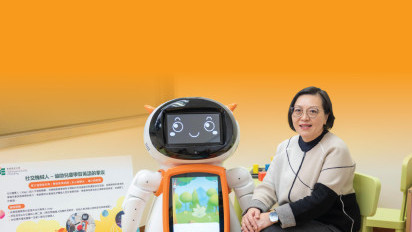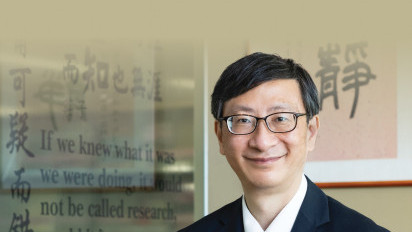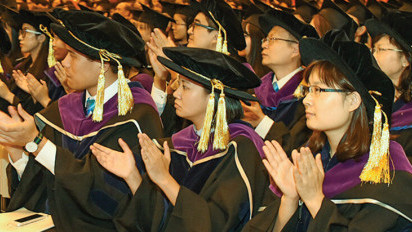Vice President (Academic) and Chair Professor of Teacher Education Professor May Cheng May-hung, the visionary architect behind EdUHK’s recent curriculum reform, outlines the University’s strategic plan for the years ahead amid the evolving landscape of teacher education as well as local and global challenges.
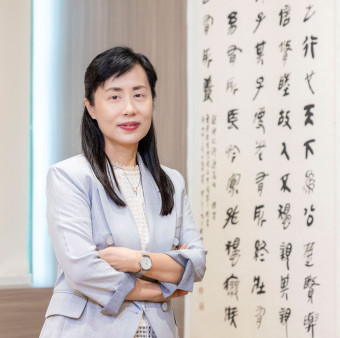
A seasoned educator who has shaped the University’s educational policies over the years through various academic leadership roles, Professor Cheng traces her teaching ethos to an unexpected source: her mother, under whom she grew up learning Chinese calligraphy. She fondly recalls her daily calligraphy practice and the unique way her work would be evaluated: rather than having marks deducted out of 100 for each mistake made — a convention she was familiar with from day school — each stroke executed well would be marked with a red circle. “It was a paradigm shift,” she says, commending the achievement-centred approach to assessment, “in both the way it helped to cultivate a growth mindset and support a positive learning environment then, and the way it shapes how I view students, education and even life to this day.” This personal legacy informs her educational philosophy, where student empowerment and realisation of potential are always a priority.
Embracing innovative education models
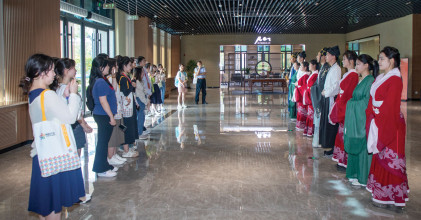
Professor Cheng recognises the shifting landscape of teacher education in Hong Kong, noting, among others, the fluctuating demand for educators due to demographic changes, and rapid advancement in education technology. In response, EdUHK has adopted a proactive and dynamic approach to teacher education, launching innovative five-year double degree programmes that equip students with practical teaching skills while preparing them for diverse career paths. This initiative ensures that graduates are not confined to traditional roles in education but are flexible and versatile enough to explore various professional disciplines, thereby enhancing their employability for the duration of their working life. “Alongside teaching competence and a genuine interest in their subject areas, it is crucial for aspiring educators to possess adaptability, psychological preparedness for changes in workforce demand, and readiness for alternative opportunities,” says Professor Cheng. With the rise of AI and other technological development, measures are also taken to ensure graduates are fully future-ready in terms of digital literacy, AI awareness and IT competency. “Our E-learning and Digital Competency Strategy is designed to promote proficiency in advanced tools and methodologies, empowering students to integrate technology into education effectively,” she adds.
We are eager to nurture well-rounded individuals equipped with the skills, values, and global perspectives essential for success in today’s dynamic landscape.
A focus on values and ethics
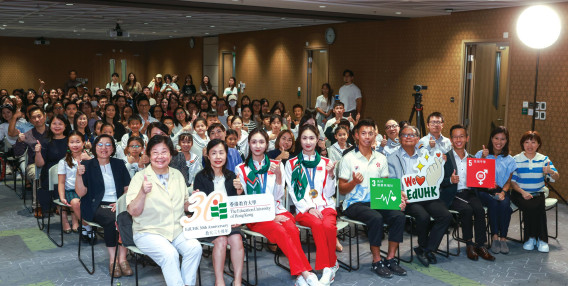
As part of its ambitious Strategic Plan 2025-2031, EdUHK is on a mission to instil proper values and attitudes in its students. A standout initiative is the innovative field experience curriculum, which seamlessly weaves together elements of Life and Values Education, Basic Law, and National Security Education to help shape teacher identity, emphasising professionalism, moral values, and legal compliance. Professor Cheng highlights the importance of values education. “It ensures that students not only acquire academic knowledge but also develop a robust ethical foundation essential for both their personal and professional journeys,” she explains. By fostering a strong sense of responsibility and understanding of rights and duties, the University prepares students to make meaningful contributions to society. Meanwhile, the introduction of New Six Arts courses celebrates Chinese culture and history, encouraging students to explore their heritage and its relevance today. The initiative is set to deepen students’ understanding and appreciation of their cultural richness, ultimately nurturing their national pride and love for Hong Kong.
Expanding global experiences
To broaden students’ horizons, EdUHK is enhancing experiential learning opportunities, particularly through local and international exchanges. Professor Cheng is excited about initiatives aimed at encouraging student participation in semester-long or shorter exchange programmes, which may take place in Greater Bay Area, Mainland China and overseas. In addition, a key component of this strategy is a new three-credit course that requires students to live and work in Mainland China for a minimum of two weeks, providing a rich, immersive experience that strengthens their grasp of multi-faceted cultural and work-related frameworks.
“We are eager to see students step outside their immediate surroundings, engage with real-world environments, and embrace global experiences,” Professor Cheng emphasises. This holistic development approach prepares students to thrive in an interconnected world, aligning with the University’s mission to foster informed citizens ready to face future challenges. By actively promoting global engagement, EdUHK aims to cultivate a generation of graduates who are culturally aware and globally minded.
“We look forward to these strategic initiatives bringing the University to new heights, especially in terms of meeting the challenges of modern education and nurturing well-rounded individuals equipped with the skills, values, and global perspectives essential for success in today’s dynamic landscape.”
Other Interview Articles


